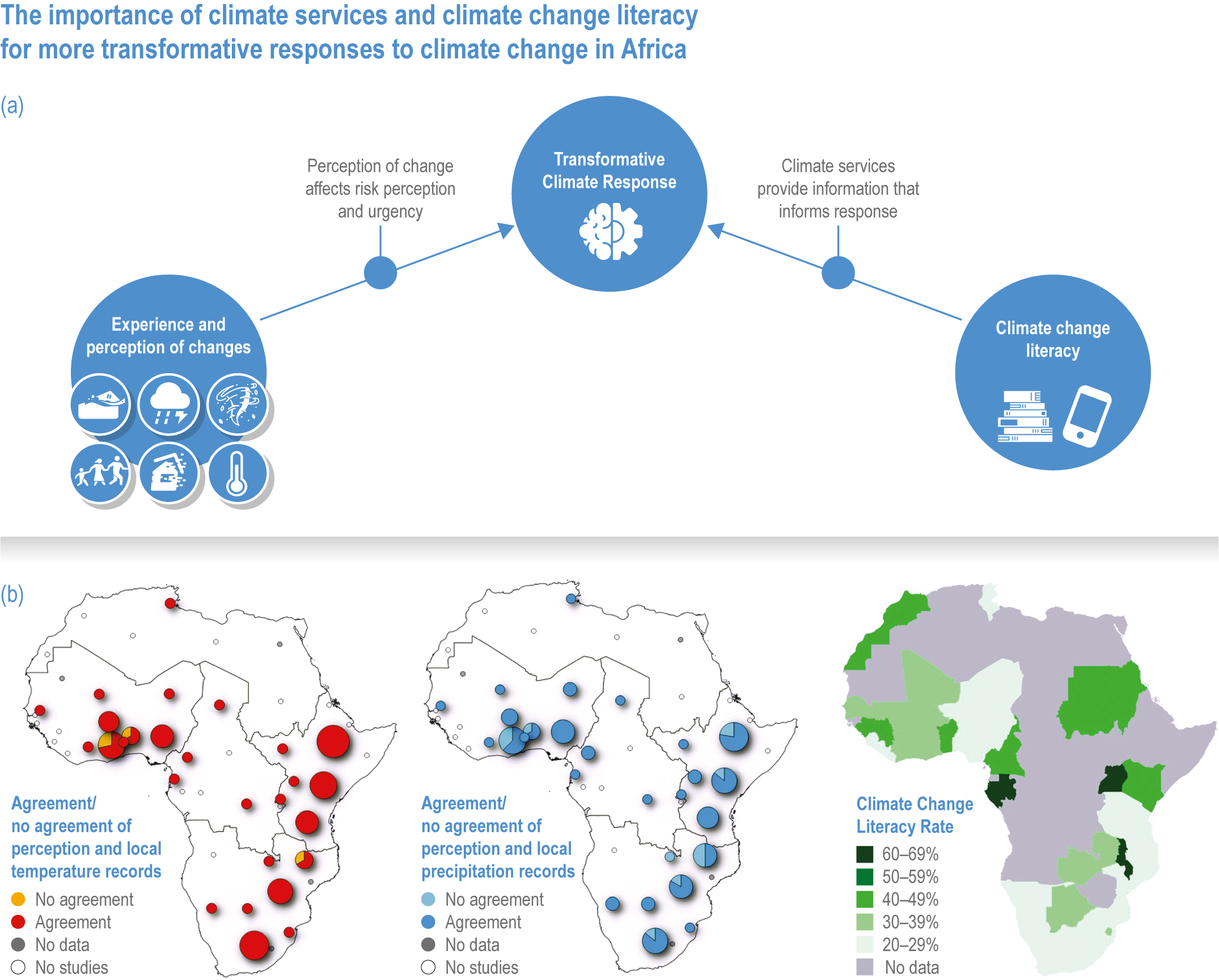Figure 9.11
Figure caption
Figure 9.11 | Climate services and climate literacy are important for informing transformative responses to climate change (including adaptation and mitigation responses)
(a) The importance of climate services and climate change literacy for more transformative responses to climate change in Africa adapted from Simpson et al. (2021a). Climate services promote climate resilient development by providing climate information for adaptation decision making (Street, 2016; Vaughan et al., 2018). Scalable uptake of climate services relies partly on climate risk perception of users, which is largely driven in Africa by experience and perception of local climate changes (Jacobs and Street, 2020; Steynor et al., 2020b; Steynor and Pasquini, 2020). Perception of climate change can occur without knowledge of its human-induced causes and its effects (Lee et al., 2015; Alemayehu and Bewket, 2017; Andrews and Smirnov, 2020). This can lead to coping responses to climate change which fall short of adaptation. Climate change literacy encompasses being aware of climate change and its anthropogenic causes and, together with climate services, can strengthen responses to climate change through better understanding of future risk (IPCC, 2019b; Simpson et al., 2021a).
(b, c) Percentage of studies that have recorded that perception of temperature changes and precipitation changes agreed with local meteorological or climate records across 33 African countries (size of bubble indicates number of studies per country for both b and c. In b, agreement with temperature changes is indicated for all studies within a country in red, and articles indicating no agreement in orange; while in c, agreement with precipitation changes is indicated per country in dark blue and articles indicating no agreement in light blue. A total of 144 studies assessed across the 33 countries).
(d) Country-level rates of climate change literacy for 33 African countries (i.e., percentage of the population that have heard about climate change and think that human activity is wholly or partly the cause of climate change) Simpson et al. (2021a).
